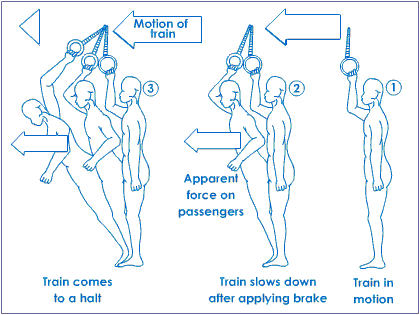If a bus stops moving suddenly, we tend to fall forwards due to the inertia of motion of our upper body. But can we explain the sudden jerk in the forward direction due to some pseudo force? (Because I think according to an observer on the ground [inertial frame], the bus is a non-inertial frame {it is accelerating} - therefore pseudo force can be applied).
But can we show this sudden jerk in the forward direction due to pseudo force?
Like this image showing this phenomenon in the train? [How can pseudo force be applied here instead of the inertia of motion].

